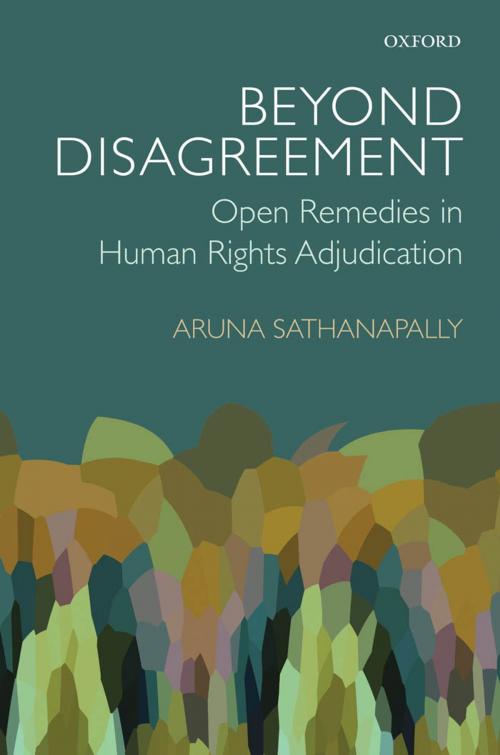Beyond Disagreement
Open Remedies in Human Rights Adjudication
Nonfiction, Reference & Language, Law, Civil Rights, Social & Cultural Studies, Political Science| Author: | Aruna Sathanapally | ISBN: | 9780191647987 |
| Publisher: | OUP Oxford | Publication: | October 25, 2012 |
| Imprint: | OUP Oxford | Language: | English |
| Author: | Aruna Sathanapally |
| ISBN: | 9780191647987 |
| Publisher: | OUP Oxford |
| Publication: | October 25, 2012 |
| Imprint: | OUP Oxford |
| Language: | English |
Examining the role of 'open remedies' in human rights adjudication, this book provides a new perspective informing comparative constitutional debates on how to structure institutional relationships over fundamental rights and freedoms. Open remedies declare a human rights violation but invite the other branches of government to decide what corrective action should be taken. Open remedies are premised on the need to engage institutions beyond courts in the process of thinking about and acting on human rights problems. This book considers examples across the United States, South Africa, Canada, and internationally, emphasising their similarities and differences in design and the diverse ways they could operate in practice. he book investigates these possibilities through the first systematic legal and empirical study of the declaration of incompatibility model under the United Kingdom Human Rights Act. This new model provides a non-binding declaration that the law has infringed human rights standards, for the legislature's consideration. By design, it has the potential to support democratic deliberation on what human rights require of the laws and policies of the State, however, it also carries uncertainties and risks. Providing a lucid account of existing debates on the relative roles of courts and legislatures to determine the requirements of fundamental rights commitments, the book argues that we need to look beyond the theoretical focus on rights disagreements, to how these remedies have operated in practice across the courts and the political branches of government. Importantly, we should pay attention to the nature and scope of legislative engagement in deliberation on the human rights matters raised by declarations of incompatibility. Adopting this approach, this book presents a carefully argued view of how courts have exercised this power, as well as how the UK executive and Parliament have responded to its use.
Examining the role of 'open remedies' in human rights adjudication, this book provides a new perspective informing comparative constitutional debates on how to structure institutional relationships over fundamental rights and freedoms. Open remedies declare a human rights violation but invite the other branches of government to decide what corrective action should be taken. Open remedies are premised on the need to engage institutions beyond courts in the process of thinking about and acting on human rights problems. This book considers examples across the United States, South Africa, Canada, and internationally, emphasising their similarities and differences in design and the diverse ways they could operate in practice. he book investigates these possibilities through the first systematic legal and empirical study of the declaration of incompatibility model under the United Kingdom Human Rights Act. This new model provides a non-binding declaration that the law has infringed human rights standards, for the legislature's consideration. By design, it has the potential to support democratic deliberation on what human rights require of the laws and policies of the State, however, it also carries uncertainties and risks. Providing a lucid account of existing debates on the relative roles of courts and legislatures to determine the requirements of fundamental rights commitments, the book argues that we need to look beyond the theoretical focus on rights disagreements, to how these remedies have operated in practice across the courts and the political branches of government. Importantly, we should pay attention to the nature and scope of legislative engagement in deliberation on the human rights matters raised by declarations of incompatibility. Adopting this approach, this book presents a carefully argued view of how courts have exercised this power, as well as how the UK executive and Parliament have responded to its use.















